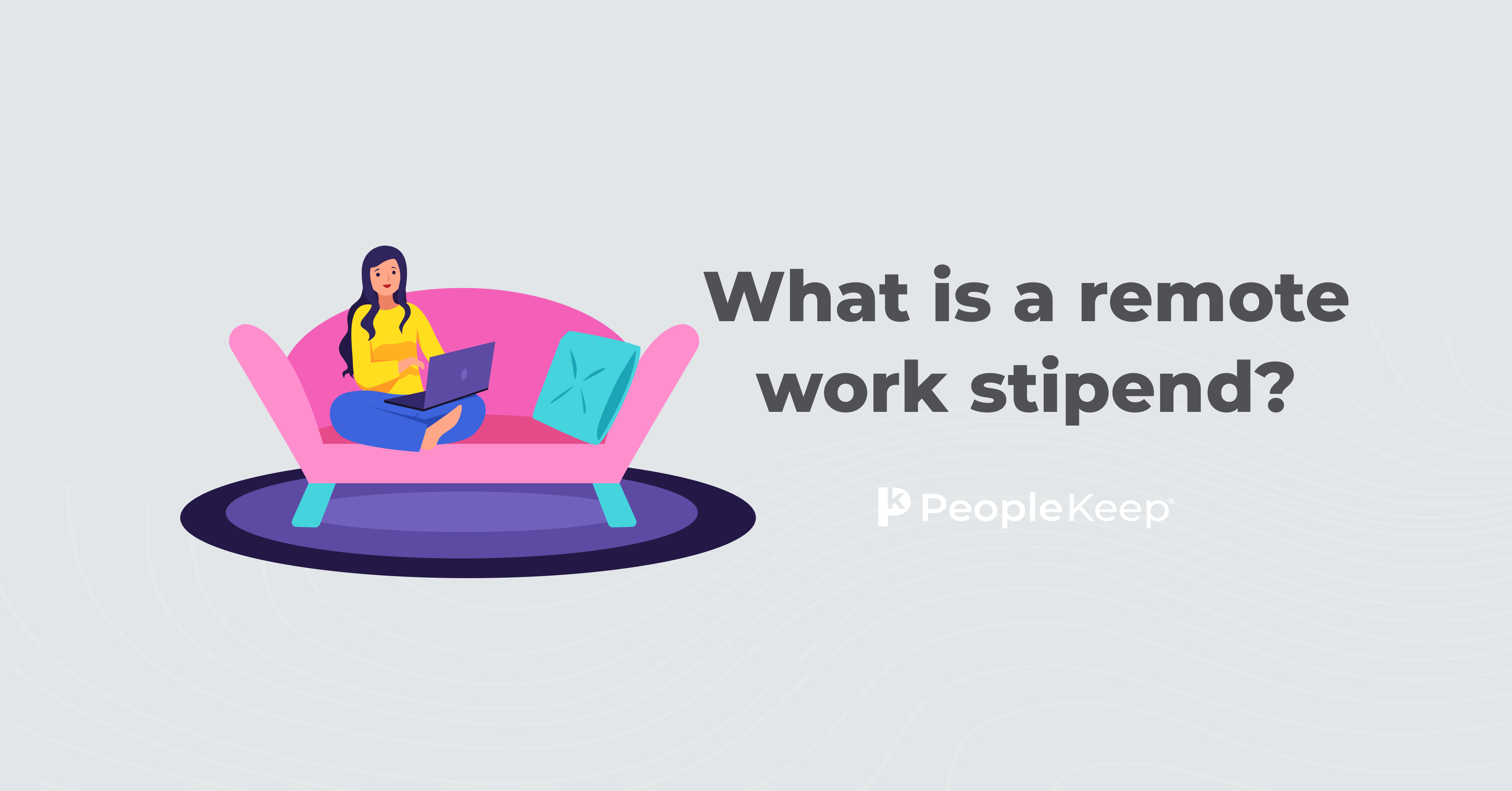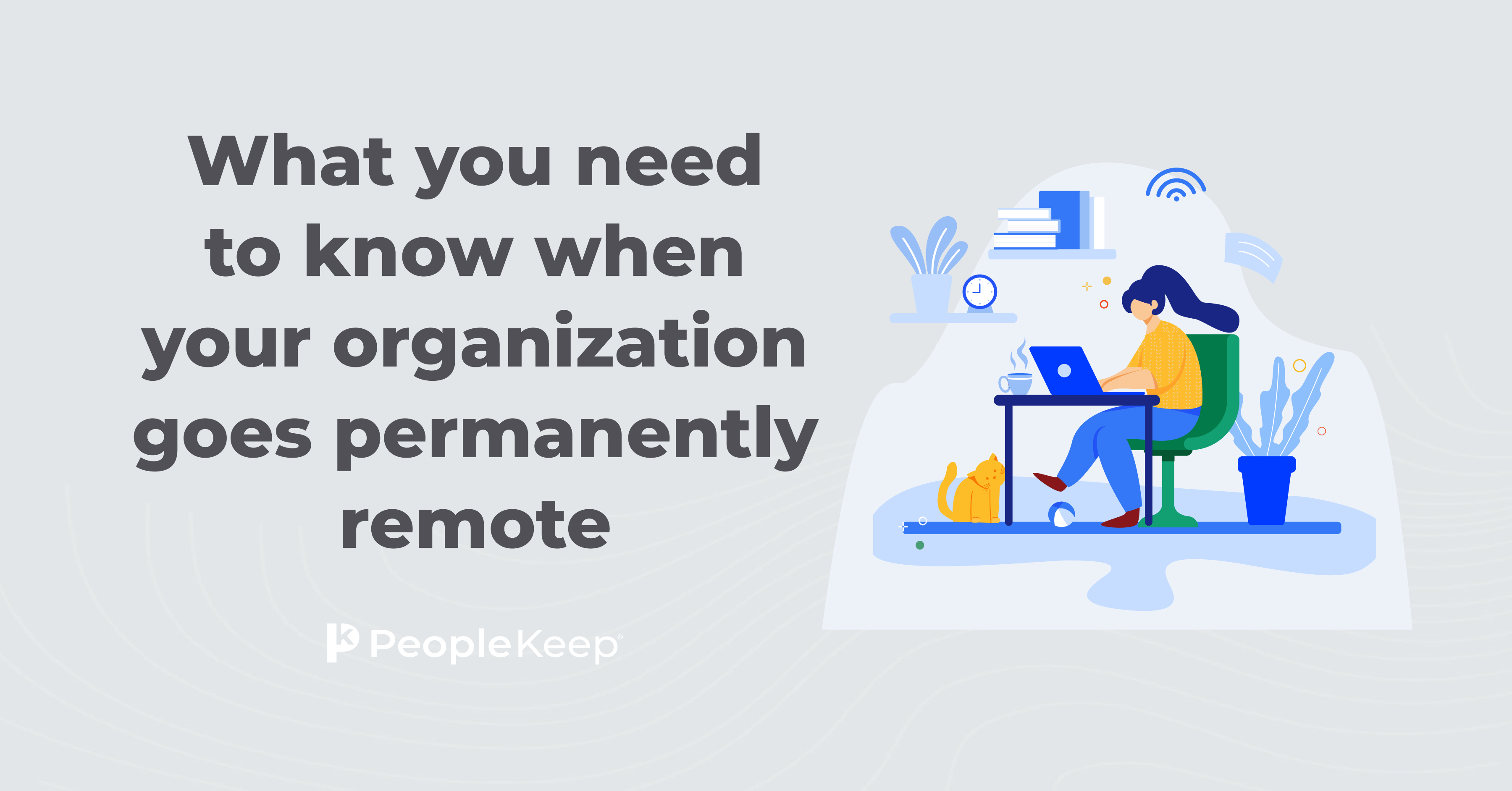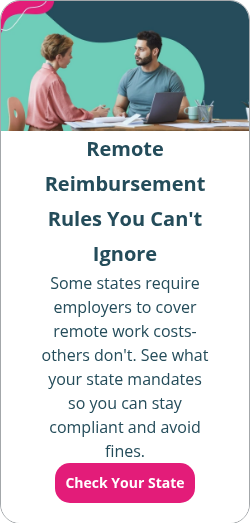How do taxes work for remote workers?
By Chase Charaba on September 10, 2024 at 8:30 AM
Remote work has been around for a long time. But the COVID-19 pandemic and new technology have made it much more common. According to WFH Research1, in August 2024, 12% of full-time employees were fully remote. Additionally, 27% worked a hybrid model.
When you have remote workers in different states, it can be difficult to understand your state tax requirements. Each state has its own approach to taxation, and depending on the physical location where your employees live and work, this tax obligation varies.
In this article, we'll explain how taxes work for different types of remote employees, which states have unique tax circumstances regarding remote work, and how remote work affects employee benefits.
In this blog post, you'll learn:
- How taxes for remote workers function and how they vary for different types of employees.
- How to withhold state and federal income taxes for your employees with remote work arrangements.
- Which states have a convenience of employer test or convenience rule for taxation.
How are employees taxed when working remotely?
When you have traditional employees who live and work in the same state as your organization, there's less uncertainty to navigate. You simply withhold state and federal personal income taxes, if applicable in your area, and pay any required payroll taxes, like FUTA.
If employees work remotely in your same state, these rules also apply, usually with only a few changes to local tax withholding.
But when employees work remotely from another state, things can get complicated. Generally, the state where your employee lives and works is the one that taxes them. You should speak with the labor and unemployment agencies of each state your employees live and work in to ensure you follow all the proper tax procedures and withholdings.
For example, suppose your employee works for your Utah-based organization but lives and works from home in Oregon. In that case, you must withhold all state and local income taxes for Oregon from their pay and benefits. You'll also have to pay any required unemployment taxes and special taxes for that remote work location.
There are exceptions to this scenario. We'll cover a few of them in the section below.
How taxation works for different types of remote workers
Remote work arrangements don't always mean working from home. There are many different types of remote employees, and they each have different circumstances that can affect taxation.
Employees who commute across state lines
Organizations near state borders often hire employees from other states who commute to work across state lines. This is common in cities such as Portland, Chicago, El Paso, Washington D.C., and New York City.
Unlike other remote workers, these hybrid workers or in-office workers live in another state but work in the same state as your organization. This creates some unique income tax rules.
In this case, you and your cross-border worker could be subject to tax liabilities in both states. Reciprocal agreements—or a compromise between states that allows nonresident workers to request tax exemption from the other state—exist in some places to prevent double taxation, but only some states have one. In these situations, the employee's resident state may issue a tax credit for any income paid to your organization's state.
For example, according to the state of Maryland2, residents of the state who work in Washington, D.C., Pennsylvania, Virginia, or West Virginia only file their state income taxes for Maryland, thanks to a reciprocity agreement with those places.
Another consideration is unemployment withholdings. In this case, you usually pay unemployment tax to the employee's state of residence.
Employees who live out of state and work from home
If you have a telecommuting employee in a state different from your office location or have employees in multiple states, you must withhold income taxes for the state they live and work in. You'll pay unemployment taxes and report their income to the states where they live, not your state.
However, some states use “convenience of employer” rules. Under this legal requirement, you pay taxes in your state rather than the employee's state. Additionally, double taxation risks, such as those for employees who commute across state lines, can still exist in some states.
If you have employees who recently moved to a new state and worked remotely, they'll need to establish a new domicile or permanent residence. This helps them avoid being taxed in both their current and former states. Some states will audit former residents to determine if they're no longer residents. The more evidence your employees have that they live in their new state, the harder it is for their previous state to claim them as residents for tax purposes.
Some steps your employees can take to establish domicile are:
- Update their mailing address for all bills
- Get a driver's license in their new state
- Register to vote
- Close any bank accounts in their old state
- Buy or rent a home in their new state
Employees who are temporarily working out of state
So far, we've discussed permanent employees who are permanent residents of their respective states. What happens if you have employees who are temporarily working remotely?
Suppose your temporarily remote employee typically works in the same state as your office location but currently works remotely in another state. For a state to consider someone a temporary worker, you must expect the temporary remote worker to return to their permanent location. Otherwise, state governments consider them permanent residents of the other state.
Each state has its own rules regarding how long an employee can work in that state as a nonresident or part-year resident without owing employment income tax. In some cases, though, an employee may need to file nonresident tax returns.
Independent contractor
Taxes are different for independent contractors. Since 1099 contractors aren't employees, they must pay their taxes as an independent business to their state of residence (if working remotely).
Convenience rule states
Some states have a convenience of employer test or convenience rule. This test requires that you withhold and pay taxes to the state where your organization is located, even if your employees live out of state. The key is if they do so out of convenience. Unless you specifically require your out-of-state workers to be remote in their state, you may have to withhold taxes for your state.
There are five states with a convenience of the employer rule:
- Arkansas
- Delaware
- Nebraska
- New York
- Pennsylvania
For example, suppose your organization is based in New York, but you have an employee working from home in Utah. In that case, you must withhold New York taxes.
A sixth state, Connecticut3, only applies the rule if the taxpayer's resident state has a similar rule for work performed for a Connecticut employer. New Jersey may also use this rule in the event of an audit.
How do remote work arrangements affect sales taxes and nexus?
In many states, having an employee or any official presence in that location triggers a sales tax nexus for your organization. Local tax jurisdictions, such as counties and cities, further complicate this.
Suppose you become liable for collecting and remitting sales tax for states due to remote work arrangements. In that case, you'll need to register for a sales tax permit and file sales tax returns to that state on the schedule that applies to your business (usually based on the number or value of transactions).
What remote work taxes are employers responsible for?
At the federal level, employers must withhold federal income tax, Social Security taxes, Federal Unemployment Tax (FUTA), and Medicare taxes for all W-2 employees, including remote workers.
There are also state income taxes and state unemployment tax assessment (SUTA) taxes that can differ by remote work location. For example, some states, like Washington, don't have a state income tax for wages. But Washington has unique employment taxes and mandatory benefits such as paid family and medical leave, long-term care insurance, and paid sick leave. You should check with each state you have employees in to see what taxes you're responsible for.
There are nine states with no income tax4:
- Alaska
- Florida
- Nevada
- New Hampshire (only taxes interest and dividends, not W-2 wages. New Hampshire will no longer tax interest or dividends starting in 2025)
- South Dakota
- Tennessee (only taxes interest and dividends, not W-2 wages. Tennessee won't tax interest or dividends starting in 2025)
- Texas
- Washington
- Wyoming
There are also local taxes that you may have to pay or withhold from your employees' paychecks, depending on their place of residence.
Other remote work considerations
In some states, you may also have to reimburse your employees for their remote work costs, such as the necessary tools to do their jobs.
One way to ensure that you remain compliant in these states while benefiting your entire remote team is to offer a remote work employee stipend. This enables you to give your employees a taxable allowance for their remote work expenses, such as internet service, cell phone bills, and home office setup costs. You'll also want to draft a company policy for remote work expense reimbursement in accordance with your local laws.
How does remote work affect employee benefits?
If you offer taxable employee benefits such as employee stipends, you'll also need to report the additional taxable income to the states that require it. This is because taxable benefits are additional income and must appear on an employee's Form W-2. This affects the total amount of taxable wages and withholdings for your employees' individual income tax.
If you're looking for a tax-free health benefit option, a health reimbursement arrangement (HRA) is a great choice. An HRA allows you to provide support for your entire team, regardless of their location. You set a monthly or annual allowance for your employees to use on individual health insurance premiums and more than 200 other types of eligible expenses. This allows you to reimburse your employees for their health coverage instead of trying to find a group plan that works for all of them.
Three of the most common HRAs are:
- The qualified small employer HRA (QSEHRA)
- The individual coverage HRA (ICHRA)
- The group coverage HRA (GCHRA)
Conclusion
Having a remote and distributed team can lead to the complicated issue of remote work taxes. You could be responsible for additional employer withholding and sales tax responsibilities if you have workers in another state who don't work in a company office. However, this differs based on the states where your employees live and where your organization is located.
Allowing your employees to work remotely in other states can create an administrative burden for your organization, but it also boosts productivity, employee retention, and employee morale and helps create a more inclusive company culture that can create more benefits for you in the long run.
PeopleKeep offers health benefits administration software, not tax services. This article is only for informational purposes. To avoid tax issues, should consult with a tax professional to learn more about your organization's legal obligations.
This blog article was originally published on July 6, 2022. It was last updated on September 10, 2024.
- https://wfhresearch.com/wp-content/uploads/2024/08/WFHResearch_updates_August2024.pdf
- https://www.marylandtaxes.gov/forms/Personal_Tax_Tips/tip56.pdf
- https://www.cga.ct.gov/2021/rpt/pdf/2021-R-0008.pdf
- https://www.hrblock.com/tax-center/filing/states/states-with-no-income-tax/
FAQs about remote work taxes
Is there a tax deduction for working remotely?
Employees can't deduct unreimbursed employee expenses or home office costs. However, self-employed workers may be able to deduct business expenses.
PeopleKeep doesn't offer tax advice. Please contact a tax advisor with specific questions about your situation.
Do remote workers get taxed twice?
Depending on where the employee lives and works, they may be subject to tax liabilities in multiple states.
Which states have no income taxes for remote workers?
Nine states have no income tax:
- Alaska
- Florida
- Nevada
- New Hampshire
- South Dakota
- Tennessee
- Texas
- Washington
- Wyoming
Check out more resources
See these related articles

What is a remote work stipend?
This article will cover everything you need to know about remote work stipends, including how they work, what they cover, and how you can offer one.

What you need to know when your organization goes permanently remote
Going permanently remote? Get ready with this comprehensive guide that covers everything you need to know about transitioning your organization to remote work.

Remote employee reimbursement rules by state
Discover remote employee reimbursement rules by state. Learn how to stay compliant with employee expense reimbursement laws across the U.S.



